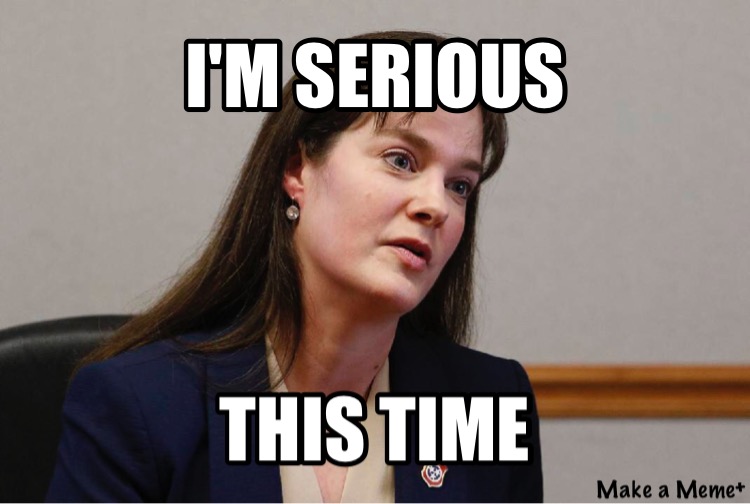Apparently, before the use of the disastrous Pre-K/Kindergarten portfolio evaluation, Kindergarten teachers didn’t realize their own importance. That’s the takeaway from a memo sent by Education Commissioner Candice McQueen to Tennessee School Superintendents. In the memo, McQueen explains the rationale behind the portfolios, discusses this year’s challenges with implementation, and looks ahead to proposed improvements.
Here’s a line where McQueen describes what she learned from listening to a small group of Directors of Schools:
The portfolio process increased the importance of kindergarten. Our teachers were saying “It starts with us.” Teachers wanted to show what they could do.
So, before portfolios, Kindergarten teachers didn’t know school started with them? None of them realized Kindergarten was important? It took an oppressive evaluation process requiring 40+ hours of time outside of school in order for Kindergarten teachers to realize they mattered?
Here’s more from the email McQueen sent to Directors highlighting what she learned:
On Friday of last week, I asked a group of your fellow superintendents from across the state to join me for a discussion about portfolios. We have summarized the listening session and feedback loop in the attached document. I am appreciative of the opportunity to have an authentic conversation about the purpose of the portfolios, the process in the inaugural year of statewide implementation, and the changes that are being put in place. Here is a brief summary of what we heard:
- Teachers’ practice improved as a result of the portfolio process.
- Teachers welcomed the accountability and started the year excited about portfolio.
- Portfolios improved teacher collaboration.
- The submission process and platform (Educopia) caused unnecessary challenges.
- There was inconsistent feedback and communication statewide.
- Peer reviewers need additional support and training.
What’s missing from this conversation is that teachers who piloted the portfolio in Knox County in 2016-17 had a relatively good experience. This included a relatively small number of collections and an internet interface that was user-friendly. Then, in 2017-18, teachers were provided with information requiring double the amount of collections and given a platform (Educopia) that was fraught with problems.
Here’s what else is missing: McQueen held a meeting with 11 school superintendents in order to hear about the experience of Pre-K/K portfolios. There were ZERO Pre-K/Kindergarten teachers in the meeting. No peer reviewers were present to share their experiences. Sure, Directors of Schools may have spoken with their teachers prior to meeting McQueen, but McQueen didn’t hear directly from those impacted by her failed policy.
Why are Pre-K/K teachers even doing portfolios? Here’s what McQueen says in that memo:
Vanderbilt Pre-K study showed that gains students had in pre-K were not sustained year over year and had been lost by third grade.
I’ve written about this before:
And here’s the secret: Both studies come to the same conclusion — Pre-K works.
That is, the state’s voluntary Pre-K program sends students to Kindergarten better prepared. And the effects of the program last through first grade. That’s right, one year of intervention yields two years of results as demonstrated by two different Tennessee-specific, longitudinal studies.
Here’s another secret: There are no silver bullets in education. Pre-K is one specific, targeted intervention. But Pre-K alone can’t solve the challenges faced by Tennessee’s low income students.
Two different studies of the state’s Pre-K program suggest that at best, the positive impacts of Pre-K last through second grade. That is, the students who meet the criteria for voluntary Pre-K (at-risk as defined by qualifying for free/reduced lunch) and gain access to the program perform better in early grades than students from the same population who don’t receive the intervention. At worst, the effect lasts only through first grade.
YES — one year of intervention yields at least two years of positive results. That’s a tremendous return on investment. Also not shocking: At-risk students who receive no other intervention besides Pre-K eventually will struggle in school. Having had Pre-K does not ensure that these students will have access to adequate nutrition or healthcare and so over time, that will certainly impact academic performance.
Instead of addressing the underlying challenges, though, McQueen and her policy team seem intent on blaming teachers and adding ever more onerous requirements on them. Maybe adding portfolio evaluation to Kindergarten teaching requirements will ensure kids have access to food, shelter, and basic health care?
Finally, McQueen points to proposed improvements for 2018-19. In addition to a new platform provided by a new vendor, here’s what teachers can expect:
It will still be important that teachers understand what the standard calls for. It will still be possible for a teacher to upload student work that does not align to the standards, which would still result in an error.
Moving forward the department will ensure that all educators get feedback on every collection in their portfolio.
Updated scoring rubrics that include greater specificity will be provided to further clarify expectations.
In June 2019, the department will convene peer reviewers in-person regionally after the year ends to have technical expertise and teacher collaboration onsite. That will turn scores around faster, allow us to address issues with everyone together, and answer peer reviewers’ questions in real time and in person.
Did you see that? “moving forward, all educators will get feedback on every collection.” You mean in the first year of a new evaluation system, the plan wasn’t to give every educator feedback on every collection? I’ve seen teacher portfolios where none of the collections received any feedback except for a numerical score. It’s somewhat understandable that there may be minimal feedback at the top end of the scoring range, but teachers whose collections receive a 1 or 2 (the lowest rankings) deserve to know how they can improve.
Also, in June of 2019, peer reviewers will be convened in-person. Again, that is a step that should have been taken in the first year of the program.
Finally, about that new vendor with a new platform:
Portfolium is a startup company designed to provide college students with a way to highlight accomplishments and work samples for future employers. Yes, you read that right: The new evaluation platform is a startup company that was founded in 2013 and just three years ago, began raising a small amount of capital to launch:
Portfolium, a Web-based social network for students preparing to start their careers, said it has closed on $1.2 million in new venture funding, bringing its total funding to $2.1 million since 2013, when the San Diego-based startup was founded.
When will teachers learn more about Portfolium? Supposedly, on August 24th.
At any rate, now Kindergarten teachers know they are important and Tennesseans know that if we have both Pre-K and early grades portfolios, all our education problems will be solved.
Try again, Candice.
For more on education politics and policy, follow @TNEdReport


